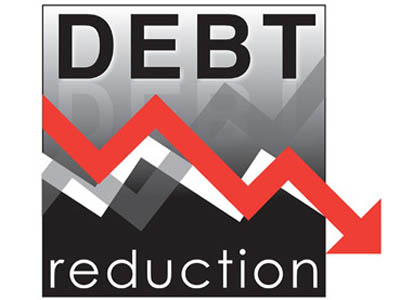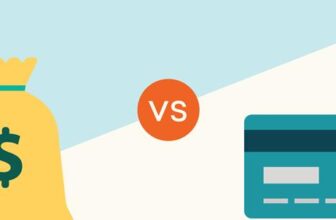
In today’s fast-paced world, financial stability and debt reduction are crucial for individuals seeking a stress-free life. The burden of debt can be overwhelming, but with the right money making options and debt reduction programs, you can regain control of your finances and work towards becoming debt-free. This comprehensive guide provides valuable insights, strategies, and expert advice to help you on your journey to financial freedom.
1. Understanding Debt
Debt can come in various forms and can accumulate due to different reasons. It’s important to understand the types of debt, the consequences they can have on your financial well-being, and the significance of becoming debt-free.
Different Types of Debt
There are several types of debt that individuals can accumulate throughout their lives. Some common forms of debt include:
- Credit card debt
- Student loans
- Mortgage loans
- Auto loans
- Personal loans
Each type of debt carries its own set of terms, interest rates, and repayment schedules. Understanding the specifics of each debt is essential for effectively managing and reducing your overall debt burden.
The Consequences of Debt
Being in debt can have significant consequences on your financial health and overall well-being. Some consequences of debt include:
- High-interest payments
- Difficulty in obtaining future loans or credit
- Strained relationships due to financial stress
- Limited opportunities for financial growth and investment
Recognizing the negative impact of debt can serve as motivation to seek effective solutions and take the necessary steps towards becoming debt-free.
The Importance of Becoming Debt-Free
Becoming debt-free offers numerous benefits and can significantly improve your quality of life. Some key advantages of debt-free living include:
- Financial freedom and reduced stress
- Increased savings and investment opportunities
- Improved credit score and financial reputation
- Flexibility to pursue personal goals and dreams
By understanding the importance of becoming debt-free, you can take proactive measures to address your debts and work towards achieving a more secure financial future.
2. Money Making Options
To become debt-free, it’s essential to explore various money making options that can increase your income and accelerate your debt reduction journey. Here are some effective strategies to consider:
Explore Passive Income Opportunities
Passive income refers to earnings generated with minimal effort or active involvement. It provides a consistent stream of income that can be used to pay off debts. Some popular passive income options include:
- Rental properties
- Dividend-paying stocks
- Peer-to-peer lending
- Affiliate marketing
By exploring passive income opportunities, you can generate additional funds to put towards debt repayment and ultimately become debt-free faster.
Side Hustles for Extra Cash
A side hustle is a great way to supplement your primary income and earn extra cash. There are numerous side hustle options available, depending on your skills and interests. Here are a few examples:
- Freelancing in your area of expertise
- Starting an online store or selling handmade products
- Offering consulting services
- Driving for a ride-sharing service
By dedicating time and effort to a side hustle, you can increase your earning potential and allocate more funds towards debt reduction.
Investments for Long-Term Financial Growth
Investing wisely can lead to long-term financial growth and provide the means to pay off debts. Consider the following investment options:
- Stocks and bonds
- Mutual funds
- Real estate investment trusts (REITs)
- Retirement accounts (e.g., 401(k), IRA)
Investing in a diverse portfolio can help you grow your wealth and create a solid foundation for achieving financial freedom.
3. Debt Reduction Programs
In addition to exploring money making options, debt reduction programs can be highly beneficial in your journey towards becoming debt-free. These programs offer strategies, assistance, and expert guidance to help you manage and reduce your debts effectively.
Debt Consolidation Options
Debt consolidation involves combining multiple debts into a single loan with a lower interest rate. This option simplifies repayment and can potentially save you money in the long run. Some common debt consolidation options include:
- Debt consolidation loans
- Balance transfer credit cards
- Home equity loans or lines of credit
By consolidating your debts, you can streamline your repayment process and work towards eliminating your debt more efficiently.
Credit Counseling and Debt Management
Credit counseling and debt management programs provide professional guidance to individuals struggling with debt. These programs offer financial education, personalized debt management plans, and negotiation services with creditors. Benefits of credit counseling and debt management include:
- Financial education and budgeting assistance
- Lower interest rates and reduced monthly payments
- Guidance in creating a debt repayment plan
- Negotiation with creditors to lower outstanding balances
By enrolling in credit counseling and debt management programs, you can gain the necessary tools and support to overcome your debt challenges.
Debt Settlement Strategies
Debt settlement programs aim to negotiate with creditors to reduce the overall amount owed. This option is suitable for individuals experiencing extreme financial hardship and unable to meet their debt obligations. Debt settlement programs provide the following benefits:
- Reduced outstanding balances
- Consolidated repayment plans
- Negotiated settlements with creditors
- Opportunity for debt resolution within a specified timeframe
Debt settlement can offer relief for individuals facing overwhelming debt burdens and pave the way towards becoming debt-free.
4. Creating a Budget
Creating a budget is a fundamental step in managing your finances effectively and achieving debt reduction goals. By tracking your income and expenses, you can gain a clear understanding of your financial situation and make informed decisions about spending and saving.
Importance of Budgeting
Budgeting allows you to:
- Identify areas where you can cut expenses
- Track your progress towards debt reduction
- Allocate funds for savings and investments
- Plan for future financial goals
By prioritizing budgeting, you can take control of your money and make intentional choices that align with your debt-free objectives.
Essential Components of a Budget
A comprehensive budget should include the following components:
- Income: List all sources of income, including your primary job, side hustles, and passive income.
- Expenses: Categorize your expenses into fixed (rent, utilities) and variable (entertainment, dining out). Analyze your spending habits to identify areas where you can cut back.
- Debt Payments: Include all debt payments in your budget, ensuring you allocate enough funds to cover minimum payments and make progress towards reducing your debts.
- Savings and Investments: Prioritize saving a portion of your income for emergencies and future financial goals. Consider allocating funds towards investments that can accelerate your debt reduction journey.
Tips for Sticking to Your Budget
Sticking to a budget requires discipline and commitment. Here are some tips to help you stay on track:
- Set realistic financial goals and milestones.
- Use budgeting tools and apps to track your expenses and progress.
- Involve your family or partner in budget discussions and decision-making.
- Review and adjust your budget regularly to accommodate changing circumstances.
- Seek support from online communities or accountability partners who share similar financial goals.
By implementing these tips, you can develop healthy financial habits and stay motivated on your path to debt freedom.
5. Smart Spending Habits
Developing smart spending habits is vital for effective debt reduction. By distinguishing between wants and needs, cutting unnecessary expenses, and finding ways to save on everyday purchases, you can make significant progress towards your debt-free goals.
Differentiating Between Wants and Needs
A crucial aspect of smart spending is understanding the difference between wants and needs. Wants are items or experiences that are not essential for your basic well-being, while needs are necessities for daily living. Ask yourself the following questions before making a purchase:
- Is this item necessary for my basic needs?
- Can I live without it?
- Does this purchase align with my debt reduction goals?
By prioritizing needs over wants, you can curb unnecessary spending and allocate more funds towards debt repayment.
Tips for Cutting Expenses
Reducing expenses is a key strategy in accelerating debt reduction. Here are some practical tips to help you cut costs:
- Prepare meals at home instead of eating out.
- Cancel unused subscriptions or memberships.
- Shop for groceries and essentials during sales or use coupons.
- Compare prices before making major purchases.
- Consider energy-efficient options to reduce utility bills.
These small adjustments in your spending habits can add up over time and make a significant impact on your debt reduction progress.
Saving Money on Everyday Purchases
Being mindful of your spending can help you save money on everyday purchases. Here are a few strategies to consider:
- Buy generic or store brand products instead of premium brands.
- Use cashback or reward programs when shopping.
- Purchase used or refurbished items when possible.
- Borrow or rent items that you need temporarily.
- Research and compare prices online before making a purchase.
By adopting these money-saving techniques, you can maximize your savings and direct more funds towards paying off your debts.
6. Emergency Fund Planning
Building an emergency fund is crucial for financial stability and successful debt reduction. An emergency fund provides a safety net during unexpected situations and helps you avoid relying on credit cards or loans to cover unforeseen expenses.
The Importance of an Emergency Fund
Having an emergency fund offers the following benefits:
- Peace of mind during financial emergencies
- Protection against unexpected expenses (e.g., medical bills, car repairs)
- Reduced reliance on credit cards or loans
- Prevention of new debt accumulation
By prioritizing an emergency fund, you can navigate unexpected financial challenges without compromising your debt reduction progress.
Strategies for Building an Emergency Fund
Building an emergency fund requires consistent effort and discipline. Consider the following strategies to save money for unforeseen circumstances:
- Set a savings goal: Determine how much you want to save and establish a realistic timeline for achieving it.
- Automate savings: Set up automatic transfers from your paycheck to a separate savings account to ensure regular contributions.
- Reduce unnecessary expenses: Review your budget and identify areas where you can cut back to allocate more funds towards your emergency fund.
- Earn extra income: Explore side hustles or part-time jobs to increase your income and expedite your savings.
By implementing these strategies, you can gradually build an emergency fund that provides a financial safety net and supports your debt reduction efforts.
7. Negotiating with Creditors
Negotiating with creditors can be an effective strategy for debt reduction. By initiating conversations with your creditors, you can explore options for lower interest rates, reduced balances, or modified repayment plans.
Approaching Creditors to Negotiate
When approaching your creditors to negotiate, consider the following steps:
- Gather information: Know the details of your debts, including outstanding balances, interest rates, and repayment terms.
- Explain your situation: Clearly articulate your financial hardships and your commitment to repaying the debt.
- Propose a solution: Present a reasonable proposal, such as a lower interest rate, extended repayment period, or reduced balance.
Strategies for Successful Negotiations
Successful negotiations require effective communication and negotiation skills. Here are some strategies to employ:
- Remain calm and professional throughout the negotiation process.
- Clearly state your financial limitations and provide supporting evidence, such as income statements or budget plans.
- Emphasize your commitment to repaying the debt and highlight any positive changes you’ve made in your financial habits.
- Be open to compromise and flexible in finding a solution that benefits both parties.
By employing these negotiation strategies, you increase your chances of reaching a favorable agreement with your creditors.
Benefits of Debt Settlement
Debt settlement can provide significant benefits for individuals struggling with overwhelming debt. Some advantages of debt settlement include:
- Reduced outstanding balances: Debt settlement programs negotiate with creditors to reduce the overall amount owed, potentially saving you a substantial sum.
- Consolidated repayment plans: Debt settlement programs help you consolidate multiple debts into a single repayment plan, making it easier to manage and track your progress.
- Negotiated settlements with creditors: Debt settlement programs have established relationships with creditors, increasing the likelihood of successful negotiations and favorable settlements.
- Opportunity for debt resolution within a specified timeframe: Debt settlement programs set realistic timelines for resolving your debts, providing a clear roadmap towards debt freedom.
Considering debt settlement as an option can provide relief and support your efforts to become debt-free.
8. Improving Credit Score
Improving your credit score is essential for long-term financial well-being. A good credit score opens doors to better interest rates, increased borrowing capacity, and improved financial opportunities.
Understanding Credit Scores
Credit scores are numerical representations of your creditworthiness, based on your credit history and financial behavior. The most common credit scoring model is the FICO score, which ranges from 300 to 850. The higher your credit score, the more favorable terms you can expect when applying for loans or credit.
Steps to Improve Your Credit Score
To improve your credit score, follow these steps:
- Review your credit report: Obtain a copy of your credit report from the major credit bureaus (Equifax, Experian, TransUnion) and review it for errors or discrepancies.
- Make timely payments: Pay your bills on time and in full to demonstrate responsible financial behavior and build a positive credit history.
- Reduce credit utilization: Keep your credit card balances low and aim to use less than 30% of your available credit limit.
- Maintain a diverse credit mix: Maintain a healthy mix of credit accounts, including credit cards, loans, and mortgages, to showcase your ability to manage different types of credit.
- Avoid opening new accounts unnecessarily: Opening multiple new credit accounts within a short period can negatively impact your credit score.
- Regularly monitor your credit: Stay vigilant by monitoring your credit score and report regularly to identify any potential issues or errors.
By consistently practicing these credit-building habits, you can improve your credit score over time and strengthen your financial standing.
Long-Term Benefits of a Good Credit Score
A good credit score offers numerous long-term benefits, including:
- Lower interest rates on loans and credit cards
- Higher chances of loan approval
- Access to better financial opportunities and products
- Potential for favorable insurance premiums
- Ability to negotiate better terms and conditions
Improving and maintaining a good credit score is an essential aspect of your journey towards financial freedom.
9. Seeking Professional Help
Seeking professional assistance can be advantageous when navigating the complexities of debt reduction. Financial advisors and credit counseling agencies can provide valuable guidance, expertise, and tailored strategies to help you achieve your debt-free goals.
When to Consider Professional Assistance
Consider seeking professional help in the following situations:
- Overwhelming debt burden: If your debt has become unmanageable and you’re struggling to make progress on your own, professional assistance can offer viable solutions.
- Lack of financial knowledge: If you’re unsure about effective debt reduction strategies or need guidance in creating a comprehensive financial plan, professional advice can provide clarity.
- Need for specialized expertise: If your financial situation involves complex matters, such as legal issues or tax implications, professional assistance can help you navigate these challenges.
Choosing the Right Financial Advisor
When selecting a financial advisor, consider the following factors:
- Qualifications and credentials: Look for certifications such as Certified Financial Planner (CFP) or Chartered Financial Analyst (CFA) to ensure expertise in the field.
- Experience and track record: Research the advisor’s experience and client testimonials to gauge their success in assisting individuals with debt reduction.
- Fee structure: Understand the advisor’s fee structure and ensure it aligns with your budget and financial goals.
- Compatibility and trust: Establish a rapport with the advisor and ensure they understand your unique financial situation and goals.
By carefully selecting a financial advisor, you can benefit from their expertise and receive personalized guidance in your debt-free journey.
Evaluating the Success of Debt Reduction Programs
When considering debt reduction programs or credit counseling agencies, it’s essential to evaluate their success and credibility. Consider the following factors:
- Reviews and testimonials: Read reviews from previous clients to gauge their satisfaction with the program.
- Accreditation and certifications: Look for reputable accreditations or certifications from organizations such as the National Foundation for Credit Counseling (NFCC) or the Financial Counseling Association of America (FCAA).
- Success rates: Inquire about the program’s success rates in terms of debt reduction and client satisfaction.
- Transparency and ethics: Ensure the program follows ethical practices and provides transparent information about their services, fees, and potential outcomes.
By conducting thorough research and due diligence, you can choose a debt reduction program that best suits your needs and increases your chances of achieving financial freedom.
10. Lifestyle Adjustments
Adjusting your lifestyle is often necessary to support your debt reduction goals effectively. By reassessing your current lifestyle choices, making sustainable changes, and finding joy in simple living, you can align your actions with your financial objectives.
Assessing Your Current Lifestyle
Start by evaluating your current lifestyle and identifying areas where adjustments can be made. Consider the following questions:
- Are there unnecessary expenses that can be eliminated or reduced?
- Are there habits or activities that drain your finances without providing significant value?
- Are you living beyond your means?
- Are there alternative, more affordable ways to enjoy your hobbies or interests?
By understanding your current lifestyle patterns, you can make informed decisions about which aspects to modify in order to support your debt reduction journey.
Making Sustainable Changes for Financial Well-being
To make sustainable changes, consider the following strategies:
- Prioritize needs over wants: Differentiate between essential expenses and non-essential indulgences, and make conscious choices to prioritize your financial well-being.
- Embrace minimalism: Simplify your life by decluttering and adopting a minimalist mindset. Focus on experiences and relationships rather than material possessions.
- Practice frugality: Look for ways to save money in your daily life, such as cooking at home, utilizing public transportation, or exploring free recreational activities.
- Cultivate contentment: Find joy in the simple pleasures of life, such as spending time with loved ones, engaging in hobbies, or enjoying nature. Shift your focus away from materialistic desires.
By embracing sustainable changes, you can align your lifestyle with your financial goals and create a more fulfilling and debt-free existence.
11. Maintaining Financial Discipline
Maintaining financial discipline is crucial throughout your debt reduction journey. By developing healthy financial habits, avoiding relapses into debt, and celebrating milestones and progress, you can stay motivated and committed to achieving long-term financial freedom.
Developing Healthy Financial Habits
Developing healthy financial habits is essential for long-term financial success. Consider adopting the following habits:
- Track your expenses and review your budget regularly.
- Automate bill payments to avoid late fees.
- Prioritize debt repayment and allocate any windfalls or extra income towards paying down your debts.
- Avoid impulsive purchases and practice delayed gratification.
- Educate yourself about personal finance and seek continuous learning opportunities.
By incorporating these habits into your daily life, you can build a strong foundation for financial discipline and debt reduction.
Avoiding Relapses into Debt
After successfully reducing your debts, it’s crucial to avoid falling back into old habits that can lead to more debt. Here are some strategies to prevent relapses:
- Maintain an emergency fund to cover unexpected expenses.
- Practice responsible credit card usage and pay off balances in full each month.
- Stick to your budget and regularly review your spending habits.
- Continuously educate yourself about personal finance and debt management to stay informed and empowered.
By remaining vigilant and proactive, you can safeguard your progress and maintain a debt-free lifestyle.
Celebrating Milestones and Progress
Celebrating milestones and progress is vital to staying motivated on your debt reduction journey. Take time to acknowledge and reward yourself for each achievement, whether it’s paying off a specific debt, reaching a savings goal, or consistently adhering to your budget.
Consider celebrating milestones by:
- Treating yourself to a small indulgence or experience within your means.
- Sharing your accomplishments with friends and family to reinforce your commitment and garner support.
- Documenting your progress through journals or visual trackers to visualize your achievements.
By celebrating your success, you reinforce positive financial habits and motivate yourself to continue on the path towards debt freedom.
12. Building Wealth
While becoming debt-free is a significant milestone, building wealth is the ultimate goal for long-term financial security and independence. By implementing strategies for wealth creation, you can ensure a stable and prosperous financial future.
The Importance of Wealth Creation
Wealth creation provides numerous advantages, including:
- Financial security during retirement
- Opportunities for generational wealth transfer
- Increased freedom and flexibility in life choices
- Enhanced ability to pursue passions and philanthropic endeavors
By focusing on wealth creation, you can break free from the cycle of debt and build a foundation for lasting financial success.
Strategies for Building Long-Term Wealth
To build long-term wealth, consider implementing the following strategies:
- Invest wisely: Diversify your investment portfolio across various asset classes, such as stocks, bonds, real estate, and mutual funds. Consult with a financial advisor to identify suitable investment opportunities.
- Continuously educate yourself: Stay informed about investment trends, financial markets, and new opportunities. Attend workshops, seminars, or webinars to expand your knowledge.
- Set clear financial goals: Define specific wealth creation goals and establish a timeline for achieving them. Regularly reassess and adjust your goals as necessary.
- Prioritize savings and investments: Save a portion of your income consistently and allocate it towards investments that align with your risk tolerance and long-term objectives.
- Seek professional advice: Consult with financial advisors or wealth management experts to develop a tailored wealth creation plan.
By implementing these strategies, you can make substantial progress towards building long-term wealth and securing your financial future.
13. Celebrating Success
Celebrating your success is an essential part of the debt reduction journey. As you achieve milestones and make significant progress towards becoming debt-free, it’s important to recognize and acknowledge your accomplishments.
Recognizing Milestones in Your Debt-Free Journey
Throughout your debt-free journey, set milestones and goals to celebrate. These can include:
- Paying off a specific debt in full.
- Achieving a certain percentage of debt reduction.
- Reaching a specific savings or investment target.
- Successfully adhering to your budget for a consecutive period.
- Making sustainable changes to your lifestyle and spending habits.
By recognizing these milestones, you reinforce positive financial behaviors and motivate yourself to continue your debt reduction efforts.
Rewarding Yourself for Achievements
Rewarding yourself for achievements helps to maintain motivation and adds a sense of enjoyment to the debt reduction process. When celebrating milestones, consider the following rewards:
- Plan a small vacation or getaway.
- Treat yourself to a special purchase or experience.
- Enjoy a day of relaxation and self-care.
- Share a celebratory meal or activity with loved ones.
Choose rewards that align with your values and financial capabilities, ensuring they don’t compromise your progress towards becoming debt-free.
Inspiring Others through Your Success Story
Your debt reduction journey can inspire and motivate others facing similar financial challenges. Share your success story with friends, family, or online communities to provide encouragement and guidance.
Consider the following ways to inspire others:
- Write a blog or social media post detailing your experiences and lessons learned.
- Offer support and advice to individuals seeking guidance on debt reduction.
- Share your progress and achievements through testimonials or case studies.
- Participate in financial literacy initiatives or local workshops to share your expertise.
By sharing your success story, you contribute to the collective effort of empowering individuals to overcome debt and achieve financial freedom.
14. Frequently Asked Questions
Q: How long does it take to become debt-free?
A: The timeline for becoming debt-free varies depending on various factors, such as the amount of debt, income, and debt repayment strategies. It’s important to create a realistic debt repayment plan and consistently make payments to accelerate the process.
Q: Will debt reduction programs affect my credit score?
A: Debt reduction programs can have an impact on your credit score. Initially, enrolling in a program may result in a temporary decrease in your score. However, as you make consistent payments and reduce your debts, your credit score can improve over time.
Q: Can I negotiate with creditors on my own?
A: Yes, it is possible to negotiate with creditors on your own. However, it requires effective communication skills, negotiation tactics, and a deep understanding of your financial situation. Seeking professional assistance can increase your chances of successful negotiations.
Q: Should I prioritize debt repayment or saving for emergencies?
A: It’s important to strike a balance between debt repayment and building an emergency fund. While paying off debts is crucial, having an emergency fund ensures you’re prepared for unexpected expenses without relying on credit cards or incurring more debt.
Q: Is it possible to invest while still in debt?
A: Investing while in debt requires careful consideration. It’s generally advisable to focus on high-interest debt repayment first. However, if your debts have manageable interest rates, you can allocate a portion of your income towards investments to take advantage of potential long-term growth.
Q: How can I stay motivated during my debt reduction journey?
A: Staying motivated during your debt reduction journey can be challenging. Consider the following strategies: track your progress, celebrate milestones, seek support from friends and family, join online communities or forums for encouragement, and visualize your financial goals.
15. Conclusion
Becoming debt-free is an achievable goal with the right money making options and debt reduction programs. By understanding the different types of debt, exploring money-making opportunities, seeking professional assistance, and implementing effective strategies, you can regain control of your finances and work towards a debt-free future.
Remember, the journey to financial freedom requires discipline, commitment, and continuous learning. By adopting healthy financial habits, making sustainable lifestyle changes, and celebrating your successes along the way, you can create a solid foundation for long-term wealth creation and achieve the financial freedom you desire.




